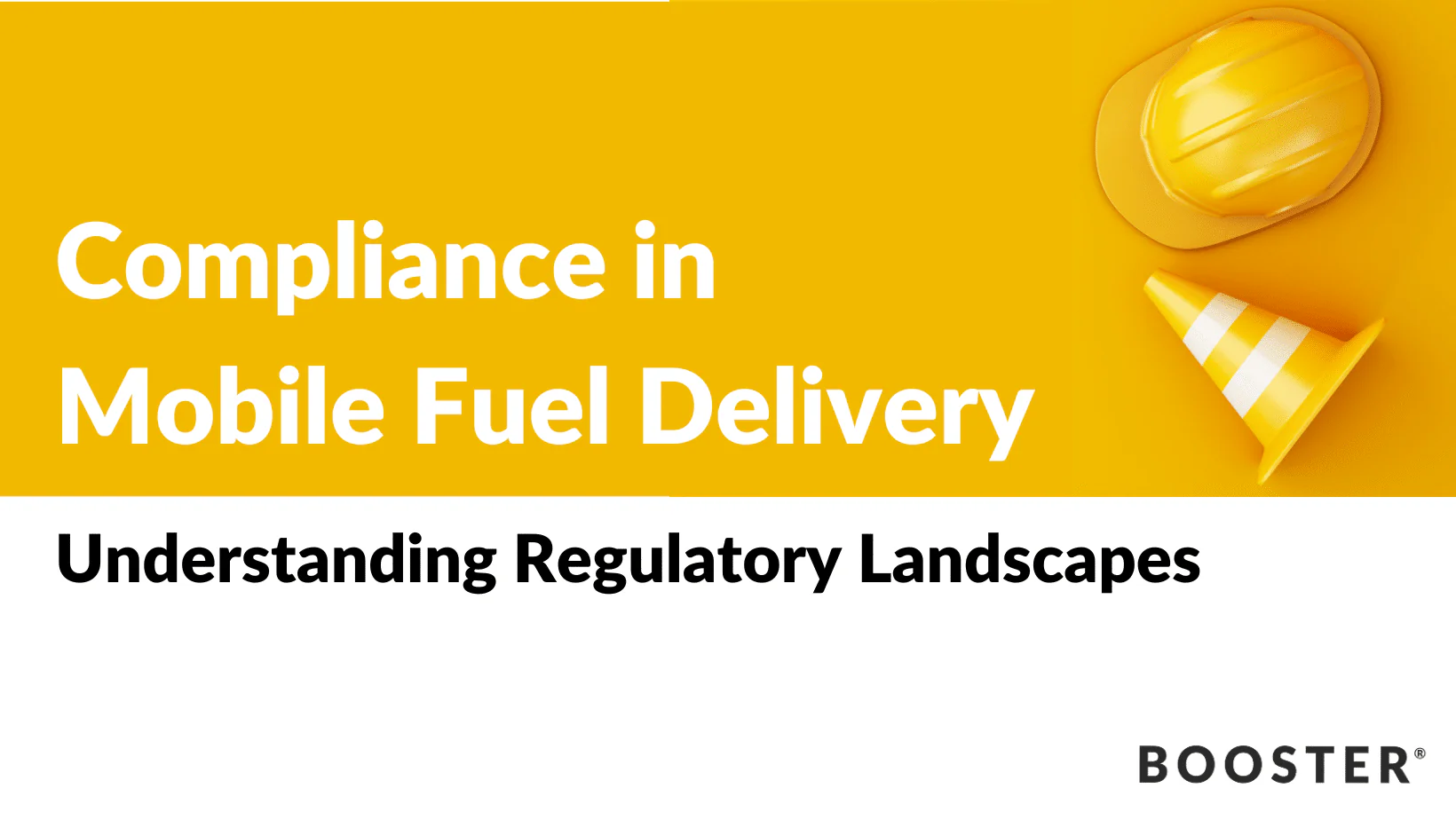Are you tired of waiting in long lines at the gas station? If yes, mobile fuel delivery is your one-stop solution for all. Mobile fuel delivery is an emerging technology that several countries have opted for, and it has already created potential opportunities in the market. According to recent reports, the on-demand fueling markets are flourishing and are projected to generate a global market of $596 million by 2027.
Consumers, especially fleet managers, have welcomed this innovation, but it has raised certain questions about its safety and compliance. This article will explore the regulatory landscapes and highlight the key challenges in operating in the dynamic sector.
What is Mobile Fuel Delivery?
Mobile fuel delivery is a service that refers to bringing fuel directly to the customers without the need for them to visit the gas station. It is an innovative concept where a consumer can request fuel delivery at their location without any hassle. The fuel is being delivered to the consumer by the professionals in a specific vehicle specially built for such service.
The popularity of this service is due to the ability to refuel, making it convenient for consumers. It doesn’t matter where the customer is. The fuel delivery company will fulfill the request, saving time and effort.
Regulatory Challenges In Mobile Fuel Delivery
With urbanization in the world, regulators are evolving according to the adaptation to ensure safety, reliability, and environmental sustainability. However, there are certain challenges faced by fuel delivery services that can be categorized into the following areas:
- Safety Standards and Practices: One of the major concerns associated with fleet fueling is safety. Booster’s approach ensures the safe delivery of fuel to the consumer. The vehicles are installed with an IOT technology that provides a precise view of routes with real-time data.
- Environmental Compliance: Regulatory actions take place to ensure that mobile fuel delivery reduces the environmental footprints. It involves several checks like emission standards, proper disposal of waste material, and spill response procedures. It impacts the assessments required to evaluate the consequences of mobile fueling. It ensures that the standards are marked to evaluate issues during the operation of local ecosystems.
- Vehicle Maintenance and Safety: Mobile fuel delivery services require specific vehicles to ensure safety and compliance. The authorities must establish certain standards per the vehicles’ designs, maintenance, and operation. The inspections, along with the documentation for record purposes, must be there. Also, the essential components must be present to ensure compliance with the fleet fueling process.
- Consumer Protection and Education: Fuel Delivery services introduce a dynamic interaction among the participants in the on-demand fueling service. It regulates the need to address issues of billing transparency, dispute resolution, and quality assurance (QA). By knowing the potential risks, every participant must be informed about the services being provided, including mobile fuel delivery providers and safe practices.
- Zoning and Land Use Regulations: Land use regulations and zoning are designed by keeping traditional gas stations in mind. The need to adapt to accommodate unique characteristics of fuel delivery. It includes proper marking for vehicle parking, fuel storage, and the residential distance.
Compliance Strategies For Mobile Fuel Delivery Providers
The evolving regulatory environment requires navigation. Fleet fueling service providers must upgrade strategies to ensure compliance with regulators, consumers, and the public. Some strategies for meeting regulatory environments are:
- Invest In Training and Certification: Comprehensive training programs must be scheduled that involve fuel delivery operation essentials. To enhance operational efficiency, it must ensure that the drivers are well-versed in safety protocols, emergency response procedures, and environmental changes. It should also demonstrate commitment to regulatory requirements.
- Engage in Open Communication with Regulators: Transparent communication with the authorities is crucial. Mobile fuel delivery providers are engaged with agencies that address and understand the regulatory concerns. It can lead to developing industry-specific guidelines to balance innovations while keeping safety and environmental responsibility in mind.
- Implement Robust Safety Protocols: The development and implementation of safety protocols are non-negotiable. It includes vehicle inspection, safety drills, and the addition of advanced technology tools to monitor and reduce the potential risks associated with it. Clear procedures for responding to emergencies are a must.
- Consumer Education and Transparency: All the consumers must be educated enough about the safety measures in billing procedures, places, and the environmental impact due to the fuel. It builds trust and helps to understand the potential concerns of the consumers and regulators.
- Environmental Responsibility and Sustainability: Using alternative fuels and implementing spill containment must be embraced environmentally. The mobile fuel delivery can proactively participate in the assessments and try their hands on the work with regulators to present eco-friendly solutions.
- Adaptation Of Technology: Technology trends are ever-evolving. Utilize the technologies to monitor and manage regulatory compliance. For a successful delivery of the fuel, the addition of GPS tracking systems, vehicle diagnostics, and real-time reporting is a must. It ensures that all the vehicles meet the required standards.
Conclusion
Mobile fuel delivery is a player in the game of fuel delivery. It works exceptionally per the convenience of the customers. However, innovation holds certain responsibilities that require attention. From navigating the complex landscapes to the safety of the citizens, it is a must to ensure every minute detail to avoid the hassle. Ensuring compliance with safety regulations is essential for the success and growth of fuel delivery services. By actively engaging with the regulators to implement all the safety measures while embracing environmental sustainability, the industry is booming by making a valid balance between innovation and responsibility. It creates a safe environment for the fuel delivery services and the company.
